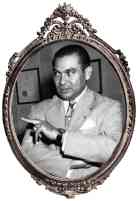The Cuban-Democracy Years

The following facts and figures come from Cuba’s experience with Democracy prior to 1959.
In the 83-year period between 1869 and 1952:
- Cuba had 20 years of Spanish rule in between 13 years of wars.
- There were 2 military occupations by the U.S. that lasted 7 years, leaving 56 total years with Cuban presidents (including the 13 years of war against Spain).
- In the 56 years with Cuban presidents:
o There were 29 terms of office.
o The average term was 1.93 years.
In the 13-year period during the Ten-Year War (1868-1878) and the final War for Independence from Spain (1895-1898):
- 9 men served as president of Cuba
- The average term of office was 1.44 years.
- 1 man (Salvador Cisneros Betancourt) served as president during both wars.
- 1 man (Carlos Manuel de Céspedes) died in battle (after being replaced by the conservative wing of the Cuban rebels, who didn’t want to end slavery so quickly.)
In the 50 year period between 1902 and 1952:
- Cuba had 3 years of U.S. military occupation, and
- 47 years with Cuban presidents.
- 17 men served as president of Cuba.
- The average term was 2.76 years.
- 3 presidents (Estrada Palma, Gerardo Machado and Mario Menocal) were elected to 2nd terms.
- 1 president (Estrada Palma) served only a few months of his 2nd term, which ended in the 2nd U.S. military occupation.
o In the September 1905 election in which Estrada Palma supposedly won his 2nd term of office, liberals were not allowed to vote in the primaries, and some counties had more votes turned in than registered voters.
- 1 president (again, Estrada Palma) was a U.S. citizen at the time of his Cuban presidency.
- Between the first months of 1933 and the last months of 1936, Cuba had 9 presidents:
o One term lasted 3 days (Carlos Hevia y de los Reyes: January 15 – January 18 1934).
o Another term lasted a few hours (Carlos Manuel Marquez Sterling: January 18 – January 18 1934).
- One man served twice (Ramón Grau San Martin) the first term lasted four months (Sept 1933 – Jan. 1934) and the second term lasted four years (October 1944 – October 1948).
- A number of elections, especially during the early part of the 20th century, seem to unintentionally resemble the 2000 Florida presidential election.
- Some elections were conducted under U.S. supervision, as politicos, especially those seeking a 2nd term, were slightly less than honest with the electoral process.
- The longest term of office was held by Gerardo Machado, who managed to “take” an extra 6 months for himself (Of course, if we include Batista’s 2nd term, which began with his famed coup d'état of March 10 1952 and lasted 7 years, he would win this category with 11 years as president (4 elected and 7 self-inflicted, which does not take into account the years of Strong-Arm influence when he was not in office. And if we go as far as today, the longest term of office prize goes to Fidel Castro, who has held office for over 45 years.)

